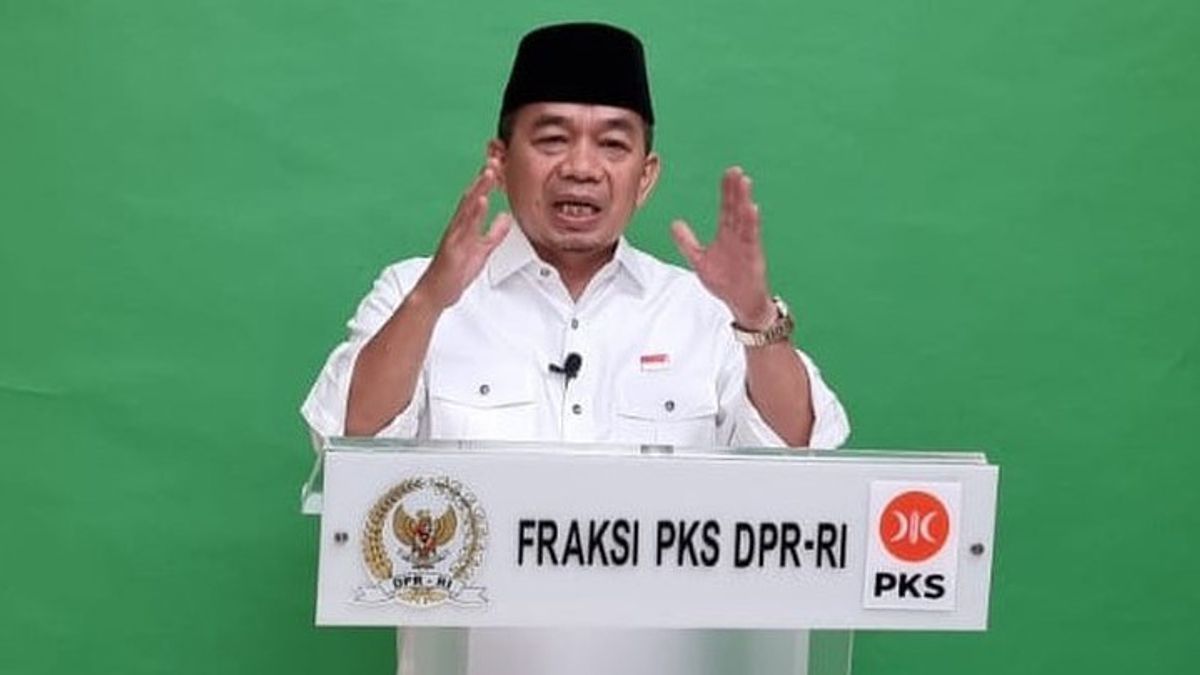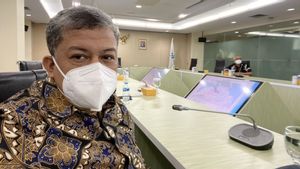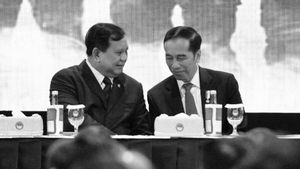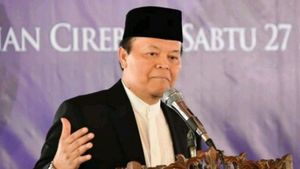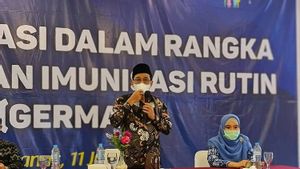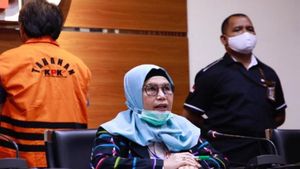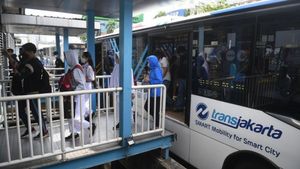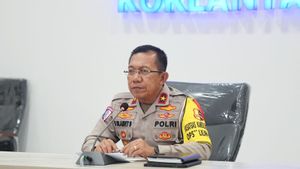JAKARTA - The Prosperous Justice Party (PKS) stated that the party was outside the Joko Widodo - Ma'ruf Amin government after a meeting of coalition parties at the Merdeka Palace, including the National Mandate Party (PAN) a few days ago.
The party led by Ahmad Syaikhu was solid as opposition even though it had to stand alone. Apart from PKS Party, there is only Demokrat Party who has yet to form a coalition with the Jokowi government.
The chairman of the PKS Party faction in the House of Representatives of the Republic of Indonesia (DPR RI), Jazuli Juwaini, said that as an opposition party, PKS Party gave four notes as an evaluation of the Jokowi-Ma'ruf government.
First, evaluation in the field of politics and law enforcement. According to him, in terms of justice, this period has not shown anything positive.
Quoting the international institution The Economist Intelligence Unit (2020), there was the lowest decline in Indonesia's democracy index in the last 14 years. Dropped to 64th out of 167 countries.
"Not to mention that critical groups are criminalized. There is a perception of injustice in the treatment between critical groups and those who often defend the government," Jazuli told reporters, Thursday, September 2.
Second, in the economic field. PKS assesses that the current government has not been able to overcome structural economic problems so that it is more in favor of the people or the people's economy as mandated by Articles 33 and 34 of the 1945 Constitution. As a result, said Jazuli, Indonesia has not moved from developing country status.
"Indonesia is trapped in the trap of middle-income countries, even the World Bank's assessment that we are downgraded to a lower-middle-income country," said the member of Commission I of the House of Representatives.
Not to mention the problem of poverty and unemployment which are still considered very high. The Central Bureau of Statistics (BPS) data for March 2021 noted that poverty was at 10.14 percent or the equivalent of 27.54 million.
"The economic gap or disparity between the people and the region is still very wide", he said.
Jazuli continued, foreign debt also continues to grow and becomes a burden for future generations. On the other hand, the direction to realize sovereignty for farmers, fishermen, workers, local human resources, as well as domestic products does not look consistent, upstream and downstream policies are often inconsistent.
SEE ALSO:
"We are a country that rich in natural resources, agricultural products and marine products, but every year the government still imports rice and salt", said Jazuli.
Third, in the field of human resource development and national competitiveness. Currently, according to Jazuli, Indonesia's ranking is still below and inferior to a number of small countries in the region.
"The 2020 UNDP data shows that the Human Development Index is ranked 107 out of 189 countries", said the Banten constituency legislator.
Fourth, in the field of ideology and practice of the values of Pancasila and the 1945 Constitution. He hopes that the national commitment will be stronger and not just lip service or slogans.
"Unfortunately, in the period of Pak Jokowi's administration, we are actually faced with unproductive, alienative, segregative narratives, even seeming to confront fellow children of the nation and diversity", said Jazuli.
The English, Chinese, Japanese, Arabic, and French versions are automatically generated by the AI. So there may still be inaccuracies in translating, please always see Indonesian as our main language. (system supported by DigitalSiber.id)
Most Popular Tags
#Prabowo Subianto #New Year #Mother's Day #nataru #NatalPopular
23 Desember 2024, 00:04
23 Desember 2024, 06:00
23 Desember 2024, 03:01
23 Desember 2024, 00:55
23 Desember 2024, 04:15
